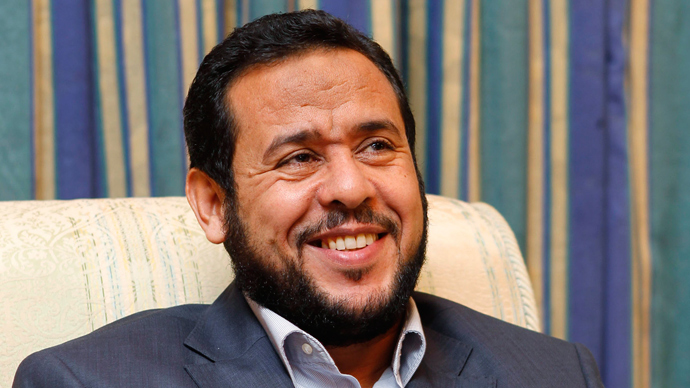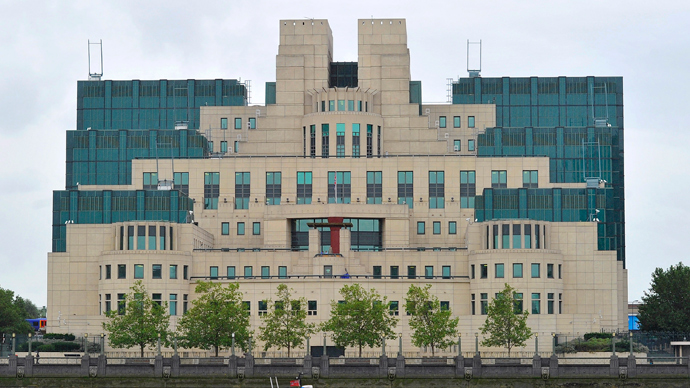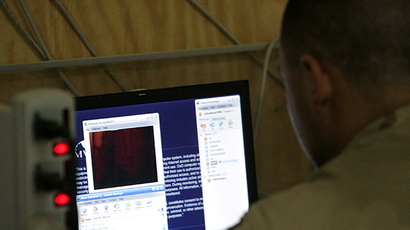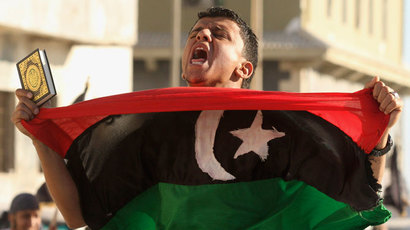UK court rules Gaddafi opponent cannot sue MI6 as it would harm 'national interests'

A Libyan revolutionary who claims he was unlawfully abducted in a joint MI6-CIA 2004 operation cannot sue the UK government in an English court for fear the case could damage Britain’s relations with the US, a London judge has ruled.
Although the High Court judge has concluded that the former
leader of an Islamist group which fought the Gaddafi regime,
Abdul-Hakim Belhaj, had a "well-founded claim" against
intelligence officers, the case appeared to fall beyond the
jurisdiction of the English court.
Peregrine Simon said he dismissed the case because the US and the
UK officials were involved in the rendition of Belhaj and his
pregnant wife to Libya in 2004, therefore the case could
"jeopardize this country’s international relations and
national security interests."
The legal firm representing Belhaj has also stated that the
ruling was made not to "damage relations with the US."
Belhaj said he will nevertheless "continue to seek the
truth" and will appeal.
He became Tripoli's military commander in the 2011, after the
rebels took over the capital and the Libyan leader was ousted
from power. In 2004 Belhaj – the then-leader of the anti-Gaddafi
Libyan Islamic Fighting Group – and his wife were detained by US
intelligence officers at Bangkok airport, when they were to fly
to London to claim asylum, and returned to Libya where Belhaj was
tortured and jailed for six years, until Gaddafi was ousted.

According to files discovered in Gaddafi's archives after his
fall, Belhaj was arrested in Thailand and returned to Libya
allegedly thanks to a British tip-off. Belhaj claims the UK
helped the US to arrange his rendition. He launched legal action
against the UK government, the former head of counter-terrorism
at intelligence agency MI6, Mark Allen, as well as former Foreign
Secretary Jack Straw. In March the Libyan man offered to settle
his case for only £3 and an apology.
The judge who concluded that pursuing the case was likely to
damage Britain's national interest explained that he came to the
conclusion "with hesitation," as there appeared to be a
"potentially well-founded claim that the UK authorities were
directly implicated in the extra-ordinary rendition of the
claimants."
"Parliamentary oversight and criminal investigations are not
adequate substitutes for access to, and a decision by, the
court," he added.
The judge mentioned he had to decide that "the conduct of US
officials acting outside the US was unlawful, in circumstances
where there are no clear and incontrovertible standards for doing
so and where there is incontestable evidence that such an inquiry
would be damaging to the national interest."
According to Belhaj, however, the judge "was obviously
horrified by what happened to my wife and I," while the
solicitor representing him at firm Leigh Day said that "if
this judgment stands, it will mean that anything our security
services do alongside the US government is totally immune from
the British legal system, even if MI6 officers arrange the
rendition of a pregnant woman into the arms of Gaddafi."
Amnesty International said it was an "extremely disappointing
decision."
"We’re increasingly concerned that there’s never going to be
any genuine accountability for the UK’s involvement in torture
and other ill-treatment overseas. Avenues of investigation and
redress are being closed down rapidly, despite these being
incredibly serious allegations about UK officials’ involvement in
torture and other ill-treatment," Amnesty official John
Dalhuisen said.

"Very general arguments about national security are being
used to prevent the truth coming out and justice being done.
There can be no immunity for serious human rights
violations," he added.
In October, a complaint saying that the UK's intelligence agency
GCHQ intercepted legal advice, which was privileged to be kept
strictly private, was lodged by lawyers representing two Libyan
families, including Abdel Belhaj's, among them. The claim pointed
out that two of the clients, Abdel Belhaj and Sami al-Saadi, were
prominent leaders of the Libyan Islamic Fighting Group during the
Libyan revolution, which makes them "likely to be of interest" to
UK intelligence agencies. MI5, the Secret Intelligence Service,
MI6, the Government Communications Headquarters, GCHQ, the UK
Home Secretary and the UK Foreign Secretary were listed as
respondents. The complaint was lodged with UK’s most secret
court, the Investigatory Powers Tribunal, which examines
complaints about the intelligence services and government use of
covert surveillance. Most of the tribunal’s hearings are held in
private, but the lawyers called for the case to be heard in open
court. Al-Saadi and his family have settled his claim against the
UK government for a payment of 2.2 million pounds.
Earlier this month it was revealed that British intelligence in
Afghanistan was also aware of the US mistreating terror suspect
detainees after 9/11 attacks, but was told not to intervene.
According to a new inquiry, set up by Prime Minister David
Cameron, the UK might have been "inappropriately
involved" in US rendition practices. The inquiry looked into
20,000 security documents and followed allegations of wrongdoing
on the part of MI5 and MI6, as the US prosecuted its war against
terror after the 2001 attack. The episodes were said to have
involved torture, mistreatment and illegal transfers. The report
found that British intelligence officers were fully aware of US
mistreatment of suspected militants in Afghanistan, Iraq and
Guantanamo Bay, but were instructed to turn a blind eye out of
the fear of offending Washington.














